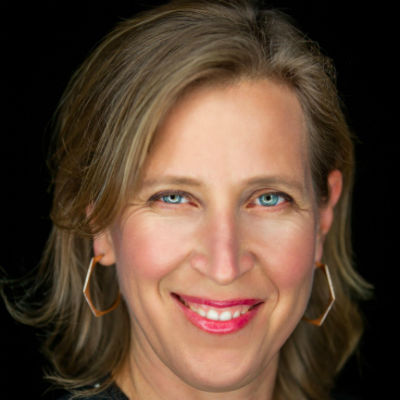Before Google became famous for its creative and innovative work environment - a conference room staged as a Seinfeld set, a bowling alley in its meeting space, slides and swings in lieu of stairs - its first digs were mundane by comparison: the garage belonging to UC Santa Cruz alumna Susan Wojcicki.
It was September 1998: Larry Page and Sergey Brin had just incorporated Google. The tech company’s co-founders were still undergrads at Stanford and they needed more space than their college dorm room could provide.
So they set up shop in Wojcicki’s Menlo Park home: the garage and three rooms in the house.
Wojcicki needed extra cash to cover mortgage payments.
She had just finished her M.B.A at UCLA after completing UCSC’s M.S. program in economics, a rigorous curriculum that trains students for careers in business, international and domestic banking, consulting firms, government, nonprofit organizations - and you guessed it - startups.
In April 1999, Wojcicki became Google’s first marketing manager and its 16th employee where she was tasked to build a worldwide brand with no budget.
“I wasn’t focused on revenue. I was focused on whether this will make a difference in people’s lives,” Wojcicki is quoted as saying. “What I saw was [that] this is something that’s providing information for people in a better way.”
As the tech startup expanded, so did Wojcicki’s position in the business. She launched the tech giant’s infamous Google Doodle; grew its revolutionary advertising platforms AdSense, AdWords, and Doubleclick; and oversaw the acquisition of YouTube where she currently serves as its CEO. Under her stewardship, YouTube has grown to over a billion users worldwide and captivated almost one third of the internet with video content.
In 2017, Forbes Magazine named Wojcicki the second “most powerful woman in tech.” In first spot is Facebook COO Sheryl Sandberg. In 2015, Time Magazine listed Wojcicki in their “Top 100 Most Influential People.” In 2013, Wojcicki topped AdWeek’s list of 50 “executives who make the wheels turn.”
Bridging the gender gap
Wojcicki also played a pivotal role in shaping Google’s workplace culture. As its first pregnant employee, she shaped company perks including providing employees with generous parental leave, on-site childcare, and lactation rooms.
She has also long been a staunch advocate for diversity and inclusion in an industry where gender discrimination and sexism in the workplace have come into the spotlight.
In an op-ed for Vanity Fair, Wojcicki called for tech CEOs to make gender diversity a personal priority; recommended that companies allocate resource to empower female and any other underrepresented employees to realize their priorities and self-organize, and advocated that gender balance and privilege must be confronted at the highest level.
Wojcicki has worked diligently to diversify the tech sector. As Forbes Magazine recognized, “Since [Wojcicki] took over YouTube in 2014, she has increased the number of female employees there from 24% to 30%. Over that same time period, the number of women working at Google has grown by just 1% to 31%.”
“I see tech being a force for change. It’s changing every part of our life. Whether you are an architect, a city planner or a biologist, pretty much any field you pick and you can say technology is changing it.” says Wojcicki in an interview with Kimberly Bryant, Founder and Executive Director, Black Girls Code at the Commonwealth Club earlier this year.
“Yet if the people who are going into it and the people who are influencing change, if only 20% of them are women, or [...] if it’s going down to 14%, that’s a problem because it means we don’t have the same perspectives, we don’t have those same voices,” she says about the urgent need to bring diversity into the tech field.
Wojcicki graduated from Harvard University in 1990 where she studied history and literature. In 1993, she received her M.S. in economics from UCSC and in 1998 earned an M.B.A from UCLA’s Anderson School of Management.

